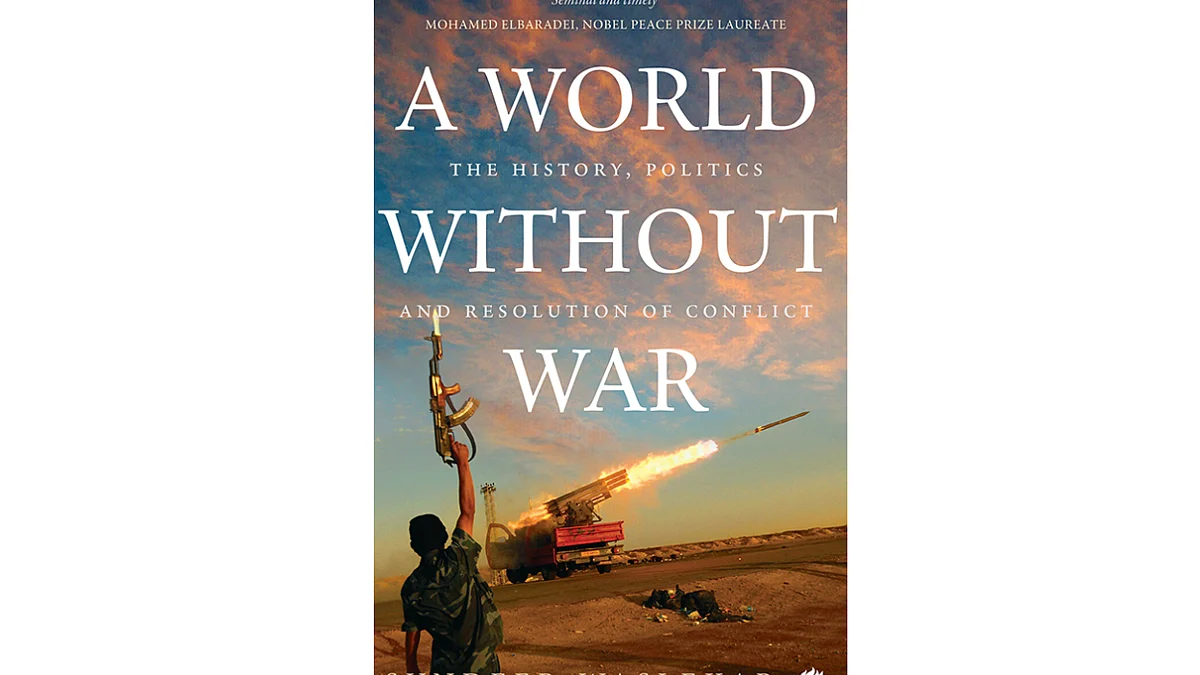Why the media needs ‘non-alignment’
Our overdependence on Western sources is distorting our view of world affairs and our sense of what is in national interest

There was always a certain Western bias in Indian media, and despite radical changes in the world order, the economic and political crisis in Euro-American countries and the rise of China, Indian media still tends to gravitate to the Western perspective. This shows in almost every global situation—the Russia–Ukraine conflict, the Middle East wars, the Israel–Palestine imbroglio, and so on.
The dominance of English and the status of the educated elite in society has a kind of hegemonic presence in most media houses. They either subscribe to American or British news and feature agencies or have regular contracts for republishing material from their newspapers and periodicals. Syndicated columns of American or English writers/journalists are a standard feature of the opinion pages of our newspapers.
Take the ongoing Russia–Ukraine conflict, for example. It’s clear that information and analyses flowing from Western media are shaping the perspectives in our domestic media. It’s really a surreptitious media war to influence our foreign policy.
India used to take some pride in an independent foreign policy, and it led the Non-Aligned Movement for many years. But over the past nine years that the Modi government has been in power, ‘non-alignment’ has practically disappeared from our foreign policy agenda and also, disturbingly, from the media discourse. There is a subtle, yet visible, shift towards the US line and American (and Israeli) corporate interests, especially their military–industrial complex.
Even if the government officially takes a ‘neutral’ position or a superficially ‘equidistant’ stand vis-à-vis the US-led NATO and Russia, the press is unquestioningly partial to the US line and hostile to Russia.
Since public opinion does shape foreign policy in a democracy, the lopsided media narrative here matters. The recruitment of intellectuals, technocrats, academics and public figures in Western (mainly American) institutions plays a big part in this orchestrated discourse, as do their seminars, conferences and fellowships, which again push the Anglo-American line in international relations.
This situation distorts our view of the world and our sense of enlightened self-interest. China, our biggest and most powerful neighbour, and Russia, a friend of long standing, become objects of extreme suspicion, beyond any reasonable doubt. This can be dangerous, given the turbulence in world affairs and the fact that the clouds of war loom. Even a nuclear conflict is not ruled out.
Sundeep Waslekar, director of the think tank Strategic Foresight Group, has published a book titled A World Without War. This book is today a major discussion point in the Ministry of External Affairs (MEA). The consensus at a recent open-house conversation on the book, featuring some top experts in international affairs, was that a ‘world without war’ may be desirable but it’s a utopian notion; in the real world, there is a genuine threat of even a nuclear conflict. Over 13,000 nuclear warheads in about a dozen countries are primed for use, and aggravating circumstances abound—from the politics of hate, to religious or regional fanaticism, to ultra-nationalist sentiment.
The media is either casual or complacent or conniving in this violent world, and the Indian media is no exception. For purveyors of information to the public, and for the public that relies on these purveyors, this is a dangerous situation.
In another time, this lack of objectivity in the media—as to the various political actors on the world stage and their motivations—would have been worrying. It might even have inspired a sort of ‘non-alignment’ in the mechanisms of news discovery, but in the current state of media affairs, to hope for that kind of objectivity is perhaps to wish for another sort of Utopia.
When I was in college in the 1960s, newspapers would carry a lot of news and analytical articles about foreign affairs. Many leading intellectuals wrote opinion pieces from different vantage points, both national and global. Nehru’s towering presence and his Panchsheel worldview, the five principles of peaceful coexistence, defined our foreign policy. There was no television. The press was known as the Fourth (and free) Estate. Even during election campaigns, Nehru and Krishna Menon and Dange, among others, would discuss foreign policy issues. Today, foreign policy hardly ever features in election campaigns or even debates in Parliament—that is, when we even have one.
We learnt about the freedom movements of various countries in Africa, about the apartheid in South Africa, about the slave trade and colonial exploitation of the Continent, and so on, from the media and public debates. We learnt about the great Congolese freedom fighter Patrice Lumumba (and his martyrdom), the charismatic Arab leader Gamal Abdel Nasser and Yugoslavia’s legendary leader Joseph Broz Tito—and, of course, about the Non-(Israel )Alignment Movement. The freedom struggles in the Third World and the revolutions in the countries of Latin America, Africa and Asia were rich topics for the press.
Today, there is hardly any debate or deliberation on international issues—and this when the world is going through a great churn. In India, there are over 300 news channels and over 300 big newspapers. There are over 100,000 registered newspapers and magazines. Yet practically no media organisation has international coverage from homegrown, home-nourished sources.
Occasionally, a correspondent may be sent to cover an event, like a meeting of the heads of states in Davos. We might like to declaim at international forums about our sovereignty. But unless we shake off this dependence on the West to understand our world, the independence we claim in our foreign policy, our worldview, is not for real.
Follow us on: Facebook, Twitter, Google News, Instagram
Join our official telegram channel (@nationalherald) and stay updated with the latest headlines
